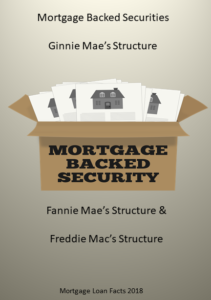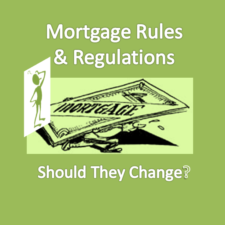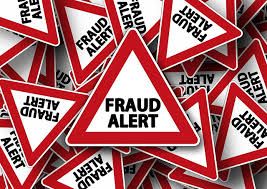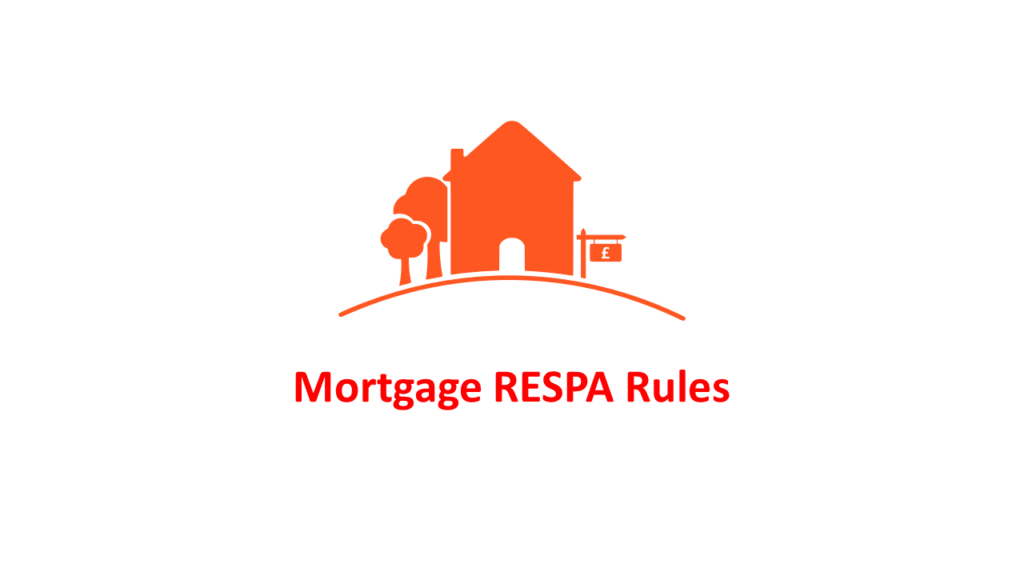Mortgage Backed Securities (MBS)- How Your Mortgage Loan is packaged and sold
*This post has been updated
Mortgage Backed Securities are how your loans are packaged, securitized, and made into bonds and sold… Mortgage Pools
“A mortgage-backed security (MBS) is an investment similar to a bond that is made up of a bundle of home loans bought from the banks that issued them. Investors in MBS receive periodic payments similar to bond coupon payments.” – Investopedia.
MBS (asset-back security) pools are only as sound/safe to sell as mortgage loans are.
And, How Fannie Mae and Freddie Mac Operate – (I worked for Freddie Mac, in Atlanta from 1985 -1987. This was how I learned about the Secondary Market and Pools, and also promoted my advancement in my mortgage career.
 Mortgage Backed Securities- Let’s get to it…
Mortgage Backed Securities- Let’s get to it…
You have heard excessive talk about Fannie Mae, Freddie Mac, FHA, and VA, but I’ll just bet you haven’t heard much about “Ginnie Mae” unless you write about them or work in the mortgage industry. It will be good for you to know who they are and what they do.
“Ginnie Mae” is the only mortgage-backed security that enjoyed the full faith and credit of the United States Government, and was established in 1968. Of course, we know now that in September 2008, the federal government made bailout the enterprises of FNMA and FHLMC. They now are government-backed but have different capacities. This resulted from, among other things, the ongoing subprime mortgage crisis.
Ginnie makes it possible for government agencies to insure loans and participate with lenders who make these loans: Federal Housing Administration (FHA), the Department of Veterans Affairs (VA), the Department of Agriculture (Rural Housing Service and the Department of Housing and Urban Development (Office of Public and Indian Housing). Their main obligation is to these entities.
What they do to make home-ownership possible for the above:
- Ginnie Mae operates as a government agency
- They also guarantee MBS and manage the MBA Program infrastructure.
- They manage the assets of issuers who default
- Approves and observe the program members
- They do work with qualified private institutions. It mainly guarantees loans insured by the Federal Housing Administration (FHA). Non-Conventional loans.
- Ginnie Mae’s guaranty allows mortgage lenders to obtain a better price for their mortgage loans in the secondary market. The lender can then use the proceeds to make new mortgage loans available.
What Ginnie (Government National Mortgage Association) Mae Does Not Do
- Ginnie Mae does not buy or sell loans or issue mortgage-backed securities (MBS pools you have read about in the secondary market). Ginnie Mae does not use derivatives to hedge or carry long-term debt.
- Ginnie Mae does not originate loans
- Ginnie Mae does not service loans unless they have had to take over a loan pool of loans
- Ginnie does not set credit rules, loan parameters, regulations, or servicing rules
- Ginnie Mae does not insure any lender re-credit risk
Actually what Ginnie Mae does is guarantee investors the timely payment of principal and interest on MBS (mortgage-backed securities) backed by federally insured or guaranteed loans to the above agencies mentioned.
This is how your mortgages are sold and put into these MBS pools.
What are Mortgage-Backed Securities?
Pools of loans…yours, mine, and others used as collateral for the issuance of securities in the secondary market. FHA, VA, RHS. These pools (MBS) can be referred to as “pass-through” certificates as the principal and interest of the loans is “passed through” to the investors. The security interest rate is lower than the interest rate of the loan to allow for payment of servicing and guaranty fees. Ginnie Mae’s MBS securities are fully guaranteed by the United States Government.
The loans in some of these pools will have the same issuer, nature of terms, interest rate, fixed-rate loans, loan amounts, etc. This makes the pool more valuable and the credit rating is normally pretty much the same so that the loans will perform in the same manner. Other pools may have a wide variety of interest rates and can include more than one issuer.
The GNMA “REMIC” (Real Estate Mortgage Investment Conduit) known as CMO also, is another level of securitization. This kind of pool does not consist of mortgages, but of mortgage-backed securities (different types of pools of loans). *note this is something similar to AIG, Lehman Brothers, and others who invested in (securities and bonds) to help generate more income for their associations by investing in the Subprime arena and got into trouble…their pools were not backed by Ginnie Mae but by Fannie and Freddie and others.
The Subprime mortgage crisis was triggered by a dramatic rise in mortgage delinquencies and foreclosures in the United State which caused major adverse consequences for banks and financial markets around the globe. One of the main reasons for this downfall was the making of adjustable-rate mortgages which amounted to about 80% of loans made.
Having worked as a Loan Officer as well as a Senior Underwrite/FHA/VA, I simply do not recommend ARM loans, unless a borrower is only going to live in the house for a short period of time…2 to 5 years. I have underwritten these loans and I understand what the risk level can be and especially the Option ARMs that were made during the Subprime feast….they were bad news…Here you can find some information about ARM.
These pools are made up of the “lenders” who have originated the mortgage loans for FHA, VA, etc., and will then be packaged and sold to investors. GNMA (Ginnie Mae) securities provide a connection between the capital markets and mortgage loan borrowers as investors purchase MBS pools and borrowers gain access to the investor funds. Capital Markets funding through MBS is much more efficient and provides a larger funding base than other traditional deposit funding. (for instance when the Savings and Loans got into trouble in 1989). Ginnie Mae helps provide the ability to efficiently pool mortgages into bonds to be sold to a bond dealer in the form of a GNMA certificate from pre-approved lenders.
Conventional loan pools are very similar to this and are called FNMA and FHLMC.
Fannie Mae (Federal National Mortgage Association) –
- Fannie was created in 1938, with hopes of the mortgage-backed securities (MBS) helping secure loans so that lenders did not need to depend upon personal or private funding for mortgage lending.
- They are now sponsored by the Federal Government but have a different objective with different kinds of borrowers, than Ginnie Mae.
- They can issue a guarantee of MBS securities also. Fannie Mae is traded publicly and they were created to retain the availability of liquid assets to the market.
- Fannie was actually originated to help provide middle and low-income borrowers the ability to buy a home.
- Fannie Mae may issue rules and regulations to the lender who originate loans for them to purchase. The audit and make available many aspects of the mortgage rules and regulations. They sometimes buy the servicing.
Freddie Mac (Federal Home Loan Mortgage Association)
- Created in 1970
- They are also sponsored by the U. S. government.
- Their services are similar to Fannie Mae, in that they were created to help provide competition within the secondary mortgage market. Freddie Mac is like Fannie in that they may also issue and give a guarantee for mortgage back securities. (This guarantee is not backed by the government).
- Freddie Mac is owned by stockholders, though also sponsored by the federal government.
- Freddie Mac also issues mortgage rules and regulations. They specify what they will and will not purchase within a mortgage loan file just like FNMA.
There are Private MBS issuers as well. They must be qualified by Ginnie Mae and this issuance is guaranteed by that government agency.
*Note: As we always state, mortgage rules, regulations, and even MBS rules change frequently
Mortgage Questions To Ask The Lender



